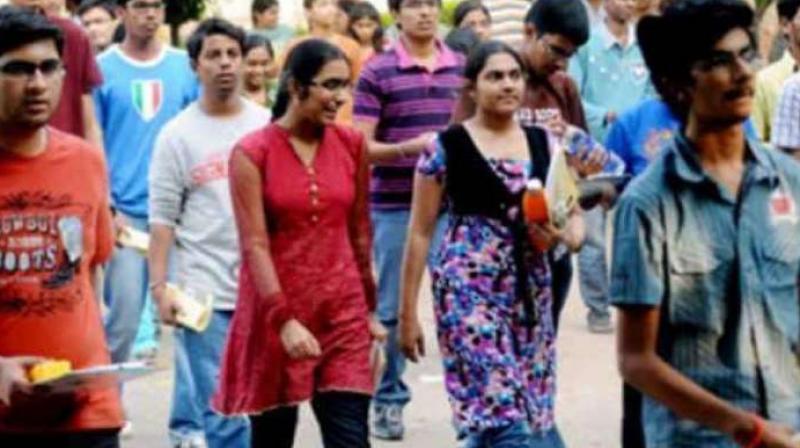Call off ban on student polls in Telugu states
Implement SC order on conducting student polls in universities, colleges.

Hyderabad: For nearly three decades now, the two Telugu states have gone without student elections in universities after the erstwhile Andhra Pradesh government banned student elections in 1988 in the wake of violent murders that took place at that time. According to the Lyngdoh Committee, elections should be a part of the student life in universities and colleges. Experts opine that many problems in educational institutions can be solved through student representatives. Though, in the past, there have been protests and demands by student leaders for lifting the ban, there has been little progress.
In 2006, the Supreme Court directed all institutions of higher education to follow the recommendations given by the JM Lyngdoh Committee regarding student representatives. One of the accepted recommendations reads, “Universities and colleges across the country must ordinarily conduct elections for the appointment of students to student representative bodies.”
Without elections, universities end up being undemocratic, states Prof. Lakshminarayana, who teaches Political Economy in the University of Hyderabad. He adds, “There should also be an alternate opinion, representing the voices of students, in the administrative and academic affairs of the institutes. This helps in the growth of autonomous institutes, where the institute is given power to frame its own curriculum.”
The professor also added that elections help students understand parties critically. He said, “At the time of elections, different organisations come up with manifestoes. Students will be exposed to various ideas and ideologies of the organisations and they will start looking critically at all these aspects. In a way it contributes to democracy outside as well. Ours being a pluralistic society, student elections are a must in order to protect the autonomy of the institutes.”
Mr M. Tirupati, State President, Student Federation of India (SFI), stated, “The TRS government had promised four years ago that it would bring back student elections, but till now there is no word on that. The importance of a vote is learned in the universities when students get involved in the election process and it helps in making students responsible.” He alleged, “Elections are not being conducted by the government in order to curb the rise of student organisations. In fact, elections increase competitiveness in these organisations and encourage them to work for the welfare of students. Because of the incidents that happened 30 years back, it is not fair to deny us elections as the conditions have changed and can be controlled.”
Speaking about the student elections, Mr Ramachandra Rao, Vice Chancellor of Osmania University, said, “It will actually be better for us if elections are conducted because now we are dealing with 60 different organisations in the campus; then we will have deal with only one Students Union for the year. But it will be better if elections are conducted after an year or so, as everything is settling slowly in the campus after the Telangana formation movement. By then the campus will be well placed to revive elections and we should also take measures to conduct violence-free elections.”

